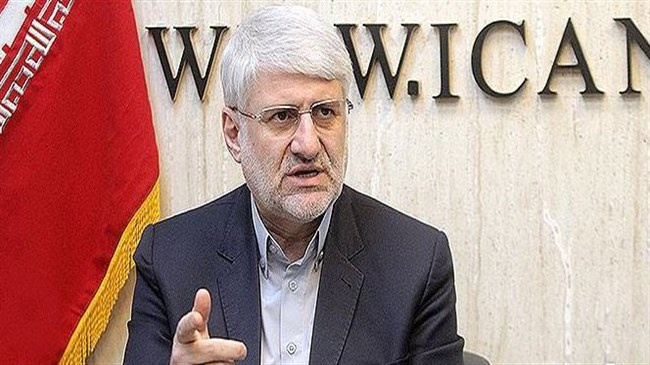MP: US incapable of blocking removal of Iran’s arms embargo

ICANA
By Sadeq Dehqan and Farzam Vanaki
Based on the Joint Comprehensive Plan of Action (JCPOA), Iran’s arms embargo must soon be lifted and the US is not capable of preventing this from taking place, said the spokesman of the Iranian Parliament’s presiding board.
Speaking in an exclusive interview with Iran Daily, Mohammad-Hossein Farhangi added this issue had been foreseen during the nuclear negotiations between Iran and the P5+1 and specified in Resolution 2231 of the United Nations Security Council (UNSC).
He noted that US bids to convince the international community to refrain from ending Iran’s arms embargo will undoubtedly fail to be successful as a number of the UNSC members do not endorse American officials’ excessive demands.
The UNSC’s arms embargo on Iran was imposed 13 years ago (2007) prohibiting the country from selling or purchasing armaments. The embargo, however, will expire in October as per an agreement between Tehran and the P5+1 during the nuclear talks, which led to the signing of the JCPOA in July 2015, and based on Resolution 2231. This comes as with the expiration date of the embargo approaching, the US, which withdrew from the JCPOA in May 2018 and reimposed its unilateral sanctions on Tehran, has launched a campaign to extend the embargo.
Commenting on the impacts of lifting of Iran’s arms embargo, Farhangi said it would naturally lead to the removal of a large number of obstacles the country is currently facing and will enable Iran to handle affairs pertaining to its defense sector more smoothly.
“We have achieved self-sufficiency in many defense fields, and in no way do we need another country to sell defensive weapons to us. Iran is even capable of selling military equipment to other countries.”
The MP added Iran does not face any limitations in terms of meeting the needs of its defense sector and selling weapons to other states, regardless of what the US wishes.
Turning to the offer by Republicans in the US Congress to impose new sanctions on Iran, he said this is not a new thing as Washington has been enforcing its cruel sanctions on Tehran under different pretexts since the early days after the victory of Iran’s 1979 Islamic Revolution.
The lawmaker regretted that the US is still insisting upon pursuing the same approach.
He added that the proposal is aimed at intensifying the pressure on Iran, stressing, “We, nevertheless, do not require others to fulfill our needs in defense as well as other sectors. We seek to meet our needs relying on domestic capabilities and resources as much as possible.”
On June 10, Republican members of the US Congress unveiled a raft of policy proposals targeting Iran and its allies, including the biggest-ever sanctions package, according to middleeasteye.net.
The 115-page document, put together by the Republican Study Committee (RSC), the largest Republican caucus in Congress, includes more than 140 initiatives aimed at Iran and its allies, including Russia and China.
The document includes 25 policy recommendations on Iran. Among the proposed sanctions directly targeting Iran are the automatic activation of the snapback mechanism and restoration of UN sanctions on the country as well as extension of UNSC’s arms embargo on Tehran.
It also calls for imposing sanctions on the Instrument in Support of Trade Exchanges (INSTEX) – a new channel for non-dollar trade with Iran opened by France, Germany and Britain to avert US sanctions, requiring the Office of Foreign Assets Control (OFAC) to broaden the scope of activities to expand the range of embargoes on Tehran, thenational.ae wrote.
Underlining that Washington’s sanctions on Tehran do not pertain solely to Iran’s nuclear issue, Farhangi said, “What is important about the sanctions is that they are not backed by the international community and many countries maintain good relations with us. We have developed enhanced capabilities in numerous sectors and do not depend on other countries.”
He added that in the defense sector, in particular, Iran is completely consistent and has clear strategies as well as an acceptable level of capabilities, giving the assurance that the sanctions cannot impact the country’s capabilities in this sector.

